Historic market of New Braunfels
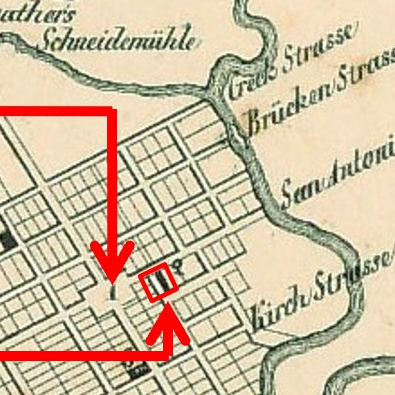
By Tara V. Kohlenberg — In this day and age, most everyone has heard of “planned communities.” They are essentially little towns (or subdivisions) that are perfectly engineered to have just the right ratio of houses to businesses to green space, carefully packaged to attract more people to a region. We see the advertisements all […]
History among the ‘stones — Comal Cemetery
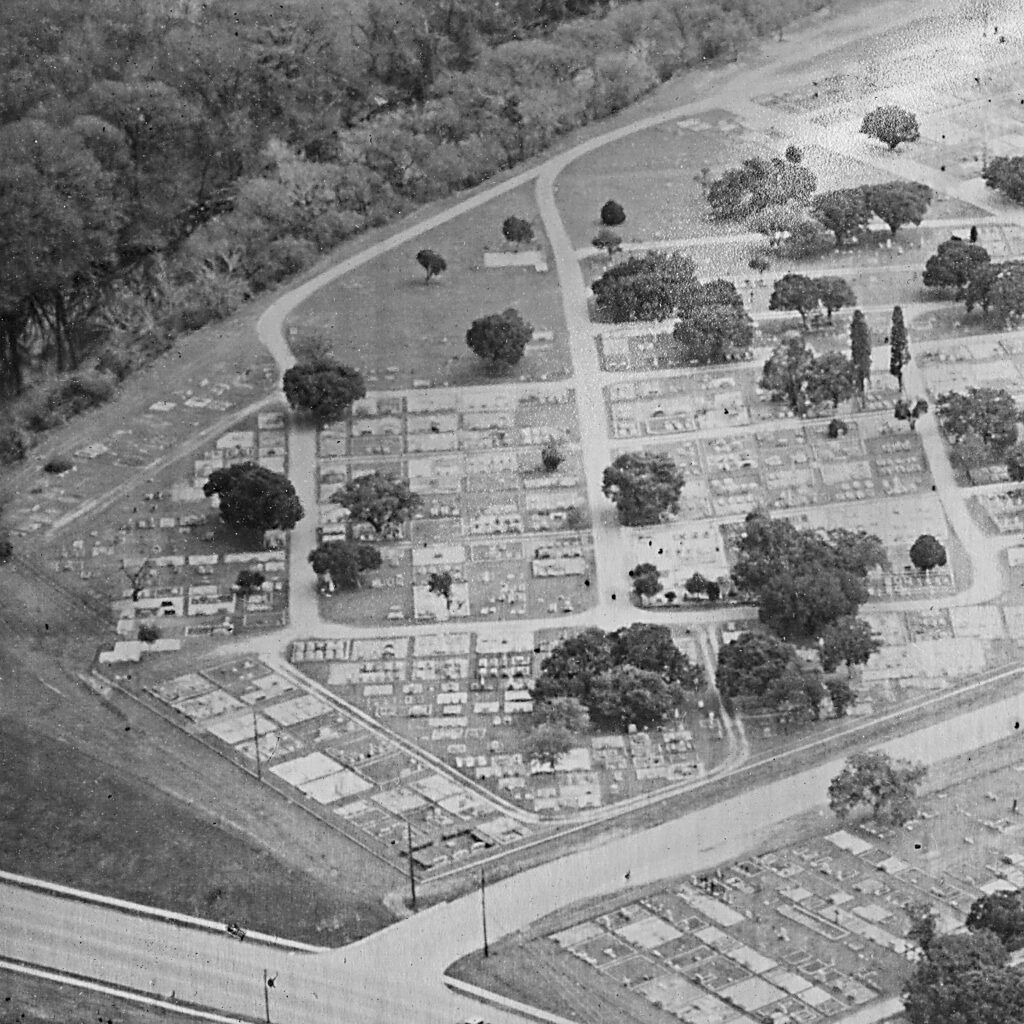
By Tara V. Kohlenberg — When I was in junior high school, I sometimes would tag along with my dad when he drove my Oma to Comal Cemetery. She tended my Opa’s grave twice a month. While they were scraping the dirt and replacing the flowers, I would wander through the gravestones. It may sound […]
Postmarks tell interesting history
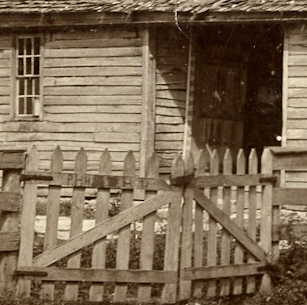
By Myra Lee Adams Goff — A young German count, Arnold-Henkel von Donnersmark, came to the New Braunfels settlement in 1845 with Prince Carl. He built a large frame building where he lived and conducted his hotel and saloon business. In less than a year he had accumulated several thousand dollars. This is how he […]
Arriving Germans found native tribes in area they settled
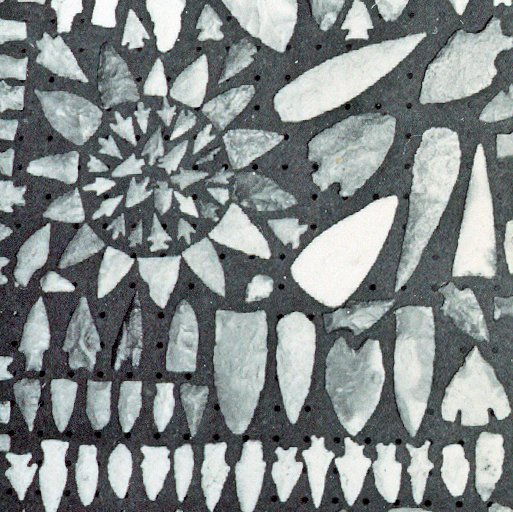
By Myra Lee Adams Goff — Prince Carl in the diary of his sojourn to Texas writes about sleeping on the ground, using a pistol case as a pillow. Even before the emigrants arrived, he feared an Indian attack. He recalled a patriotic drinking song called “Deutschland Hoch.” Rewriting his own words to this song, […]
Sophienburg History Award 2023
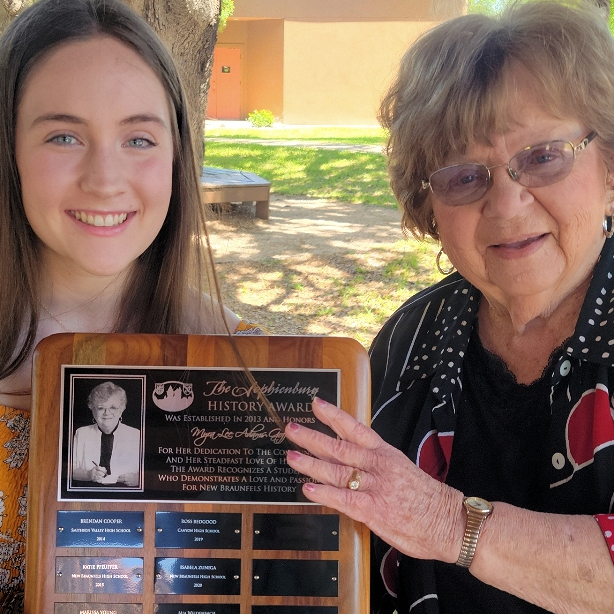
By Tara V. Kohlenberg — Now in our 90th year of existence, the Sophienburg Museum and Archives has maintained artifacts and archival documents to keep the history of New Braunfels alive. Part of our mission is to not only preserve the history, but to share the stories with the generations that follow. I am beyond […]
Recollections of early New Braunfels
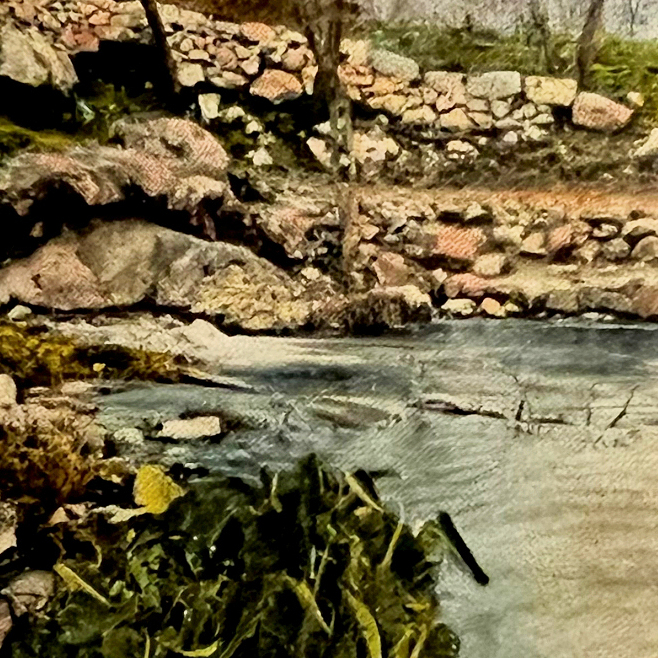
By Tara V. Kohlenberg — German immigrants crossed the Guadalupe River on March 21, 1845, setting foot in the next long-term waystation. When spring rolls through Central Texas, it is easy to see why the founding families sought to stay here, in New Braunfels, rather than move further along to the promised land of the […]
Much can be discovered by visiting graves at Comal Cemetery

(Encore of article that first appeared November 26, 2008.) By Myra Lee Adams Goff — Recently I went to the Comal Cemetery to visit family and friends. Don’t tell me that I’m the only one that does that; someone brings the flowers! Since I started writing this column I have greatly increased the number of […]
The Dittlinger legacy

By Tara V. Kohlenberg — Who would believe that a Union soldier residing in New Braunfels for a mere three months could leave a lasting mark on our city? Nicolaus Dittlinger did just that. In December of 1865, Nicolaus Dittlinger arrived in New Braunfels with his wife and youngest child, taking a room at the […]
Yet another rip-roaring July 4th celebration

By Myra Lee Adams Goff — Historically, the first July 4th celebration in New Braunfels goes back to 1846. The emigrants had arrived only three months earlier on March 21, 1845, when Texas was still the Republic of Texas. Now, in 1846 they could celebrate the national festival commemorating the signing of the Declaration of […]
Waggoners important to early New Braunfels transportation

(Encore presentation — Originally appeared February 8, 2011) By Myra Lee Adams Goff Waggoners or Teamsters were important to early New Braunfels. They not only led the wagon trains of the early German settlers but they hauled freight to and from the frontier, especially the Gulf coast. G. Fred Oheim, editor of the Zeitung’s Jahrbuch in 1943, […]





